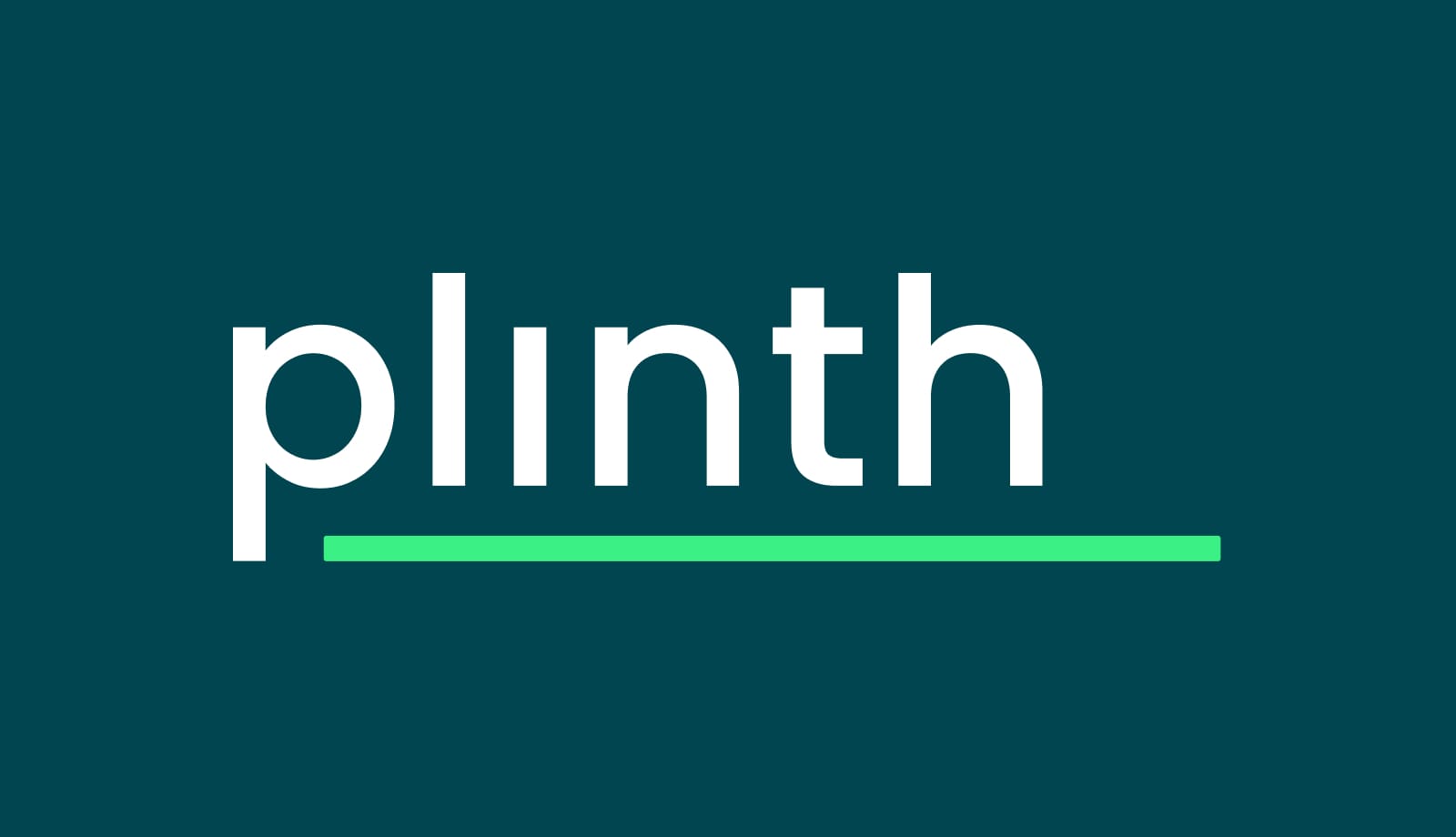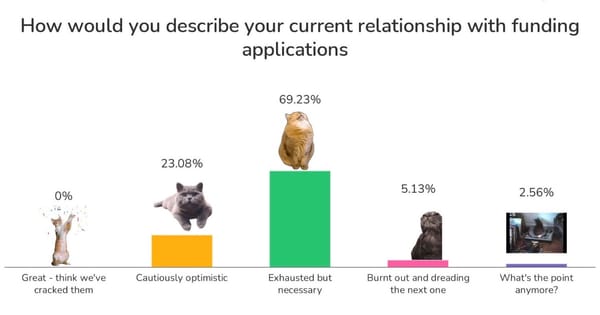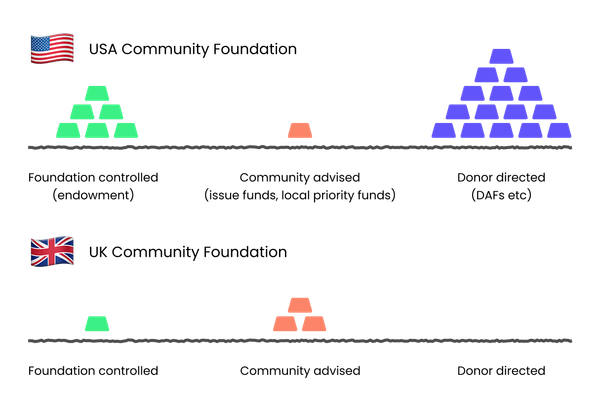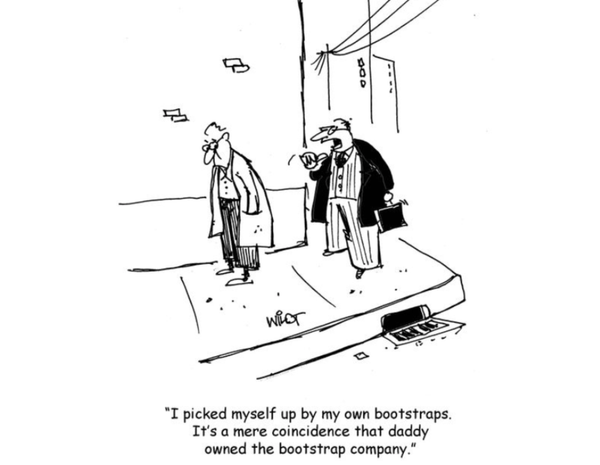Grant Me Serenity: Introducing our AI Grant Writer.
We've taught an AI to find and write grant applications, massively cutting the time needed for everyone involved, and potentially saving charities hundreds of millions of pounds per year.

5 years ago, we wrote about how almost half of grants in the UK cost more than they were worth. And we weren't the only people to notice: a few months later, Bath University released some research showing that the grant application process costs the UK £1.1 billion per year. The team at Giving Evidence then followed up with some more robust research in 2022, estimating the figure to be £900m.
Whatever the exact figure, today we're finally launching the solution.
We've taught an AI to find and write grant applications, massively cutting the time needed for everyone involved, and potentially saving the UK hundreds of millions of pounds per year.
But, more importantly, if you're a charity that is looking to find more funding for the vital work you do, you can use it right now: AI Grant Writer.
The Grant Writer in action
How it works:
In our previous (now ancient) piece, we wrote about the different types of costs that charities face with the grant making process:
- Finding the right grant
- Reading the guidance and application criteria
- Writing the application
- Reporting on the grant
We've taught our AI model to do each step, as well as an additional step of finding the right grants for your project. We have handled all the complexities of choosing the right Large Language Model, prompt engineering, RAG, prompt chaining and embeddings, so you don't have to worry if all those words made your eyes glaze over.
You can just put in your project details, upload some documents and away you go.
Finding the right grant
We've built a grant database, and an AI-powered search tool to help you wade through all the different options.
Obviously these already exist, but too often they rely on keyword searches and complex filters. We've flipped this on its head, so all you need to do is describe your project as you would to a potential funder, and we automatically apply all the right filters to find the best grants for you.
We can even help you automatically broaden your search, so if you're looking for funding for your bowls club, we'll automatically generate searches for things like "mental wellbeing" or "community sports", so you don't have to be an expert in all the funder jargon. You can use us as your translators from normal-speak.
Reading the guidance
Of course once you find the grant, you need to read through pages of criteria:
- Will they fund new or existing projects?
- Do they fund CICs, or only registered charities?
- Will they fund capital costs?
- Are there any bizarre additional restrictions?
This is annoying and can take ages, but if you don't do it, you might waste even more time applying for a grant you're not eligible for.
We've done all this for you. We pull all the funding criteria, compare it directly to your project/organisation description, and give you ticks, crosses and suggestions for what you can do to amend your proposal to be a better fit.
It takes about a minute from start to finish.
Writing the application
Now onto the meat of the problem – actually writing the application once you're sure you're eligible. This is where the new AI models really shine.
You may have already tried using free tools like ChatGPT for answering some questions on a grant application (we have too). If you have, you'll find that it does a fairly good job on short, extremely standard questions, but it starts to fall apart with a longer narrative question. It also has a tendency to make stuff up.
We've built our AI tool to address these issues, with one simple main point: Context is key.
Unless you're a big famous charity with a well known brand, an AI model has very little knowledge of what you do. If you just ask it to answer a question, like "Why is my organisation well placed to deliver this work?", in its desperation to be helpful, it will just answer with a bunch of well-meaning nonsense, because it doesn't have the context to respond properly. The trick is to give it the context it needs, and to use this information to answer well – no different to how if you employ an external bid writer, you'll need to give them case studies, impact reports and other details about your projects.
To do that, we take your previous grant applications, your impact reports, information from your website and information you've submitted to the charity commission to create this context. We save it in a special kind of database, so we can find relevant facts, sentences and paragraphs from things you've written to include in the "prompt" for new questions.
The result is answers to questions that are specific to your work, and tailored to the fund you're applying to:
Reporting on the grant
Once you've won the grant (which hopefully we'll help make more likely), we can also help you with the reporting process.
Using our case management, client management, calendar/registers, outcome measurement and surveys platform, you can collect together all the data you need to report back to your new funder. You can use this for free, forever.
We can even help you pull statistics from this information back into future grant applications to improve your chances of success.
What next?
You can sign up to use the AI tool now, if you go here: AI Grant Writer.
If you want to come to a session where we'll be demo-ing the tool, so you can ask any other questions, we're hosting one on the 29th of February.





